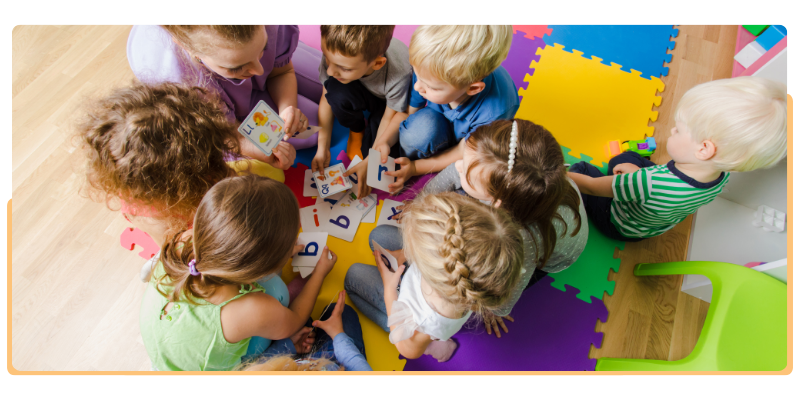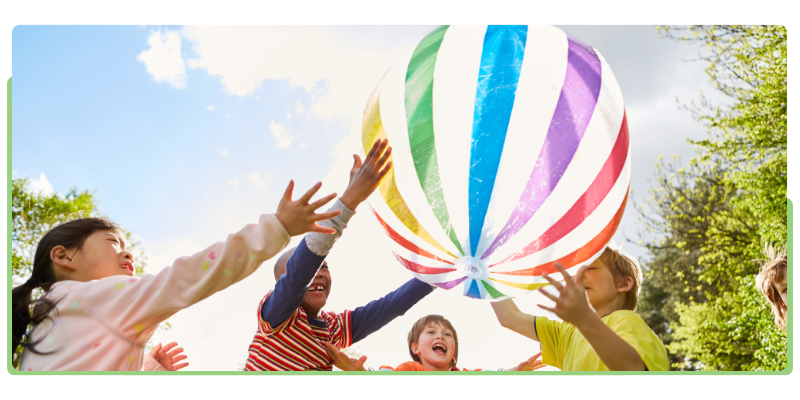How Personalized Learning Plans Enhance Child Development in Early Childhood Education

In early childhood education's dynamic and ever-evolving field, personalized learning plans have emerged as a transformative approach to enhancing child development in Preschools. These tailored educational strategies recognize each child's unique needs, interests, and developmental stages, fostering an environment where young learners can thrive. This blog will explore how personalized learning plans benefit children in Preschool settings, from boosting cognitive development to nurturing social-emotional skills.
Understanding Personalized Learning Plans
Personalized learning plans are educational frameworks designed to cater to each child's learning styles, strengths, and needs. Unlike a one-size-fits-all approach, these plans involve customized activities and goals that align with a child's interests and developmental pace. Personalized learning plans can be implemented in a Preschool setting through observation, assessment, and collaboration between caregivers and parents.
Cognitive Development
One of the most significant advantages of personalized learning plans is their impact on cognitive development. Young children are naturally curious and eager to learn, but they do so at their own pace and in their way. Personalized learning plans accommodate these differences, allowing children to explore subjects and activities that captivate their interest. This tailored approach helps children build a strong foundation in critical thinking, problem-solving, and creativity.
Activities to Enhance Cognitive Development:
- Math Games: Counting games, puzzles, and pattern recognition activities.
- Science Experiments: Simple, hands-on experiments like planting seeds or mixing colors.
- Storytelling and Literacy Activities: Interactive story sessions, letter recognition games, and phonics exercises.
- Creative Arts: Drawing, painting, and crafting projects that encourage imagination and fine motor skills.

Social-Emotional Development
In addition to cognitive benefits, personalized learning plans are crucial in supporting social-emotional development. Preschools are not just places for academic learning; they are environments where children learn to interact with peers, manage emotions, and develop a sense of self. Personalized learning plans help caregivers address each child's unique social and emotional needs, promoting a positive self-image and emotional resilience.
Activities to Enhance Social-Emotional Development:
- Group Activities: Cooperative games, team projects, and circle time discussions.
- Emotional Expression: Role-playing, storytelling, and emotion identification games.
- Conflict Resolution: Guided interactions where children learn to resolve disputes amicably.
- Mindfulness Exercises: Simple yoga, breathing exercises, and guided relaxation techniques.
Building a Stronger Relationship Between Caregivers and Parents
Personalized learning plans also foster stronger relationships between caregivers and parents. Effective communication and collaboration are essential components of developing and implementing these plans. By involving parents, caregivers gain valuable insights into the child's interests, routines, and behaviors outside the Preschool setting. This holistic understanding enables caregivers to create more meaningful and compelling learning experiences.
Strategies to Strengthen Caregiver-Parent Relationships:
- Regular Updates: Daily or weekly reports on the child's progress and activities.
- Parent-Teacher Meetings: Scheduled discussions to review the learning plan and make necessary adjustments.
- Home Activities: Suggestions for at-home activities that complement the Preschool curriculum.
- Feedback Mechanisms: Surveys and feedback forms to gather parents' input and concerns.

Adapting to Diverse Learning Styles
Every child is unique, with their preferred ways of learning and engaging with the world. Personalized learning plans recognize and celebrate this diversity by providing varied and adaptable learning experiences. Whether a child learns best through hands-on activities, visual aids, auditory instruction, or a combination of methods, personalized plans ensure that their learning style is accommodated.
Activities for Different Learning Styles:
- Kinesthetic Learners: Activities involving movement, such as dance, outdoor play, and hands-on experiments.
- Visual Learners: Use charts, pictures, videos, and visual storytelling.
- Auditory Learners: Songs, rhymes, and listening games focusing on auditory skills.
- Read/Write Learners: Activities that involve reading books, writing exercises, and using flashcards.
Promoting a Lifelong Love of Learning
One of the most profound impacts of personalized learning plans is their ability to instill a lifelong love of learning. When children are engaged in activities that interest them and are tailored to their needs, they are more likely to develop a positive attitude toward education. This early enthusiasm for learning can have lasting effects, fostering a mindset of curiosity, exploration, and continuous growth.
Activities to Foster a Love of Learning:
- Exploration Time: Allowing children to choose their activities based on interest, such as nature exploration or imaginative play.
- Project-Based Learning: Long-term projects children can work on over time, such as building a model or creating a storybook.
- Interest-Based Clubs: Small groups focused on specific interests like science, art, or music.
- Field Trips: Visits to museums, parks, and other educational sites that spark curiosity and learning.
In conclusion, personalized learning plans are a powerful tool for enhancing child development in early childhood education. These tailored educational strategies promote cognitive growth, social-emotional development, and a lifelong love of learning by catering to each child's unique needs, interests, and developmental stages. Furthermore, personalized learning plans strengthen the partnership between caregivers and parents, creating a supportive and collaborative environment for young learners. Parent communication tools further enhance this collaboration, ensuring that learning and development are seamlessly supported in the Preschool and at home. As Preschool centers continue to embrace and implement personalized learning plans, they pave the way for a brighter, more inclusive, and more effective future in early childhood education.
ChildPilot provides a comprehensive childcare management software solution for childcare providers, simplifying center operations and enhancing parent engagement. It combines essential functions such as check-in/out, parent communication, billing, and compliance into a user-friendly platform supported by exceptional customer service. Request a demo today to discover more!
426